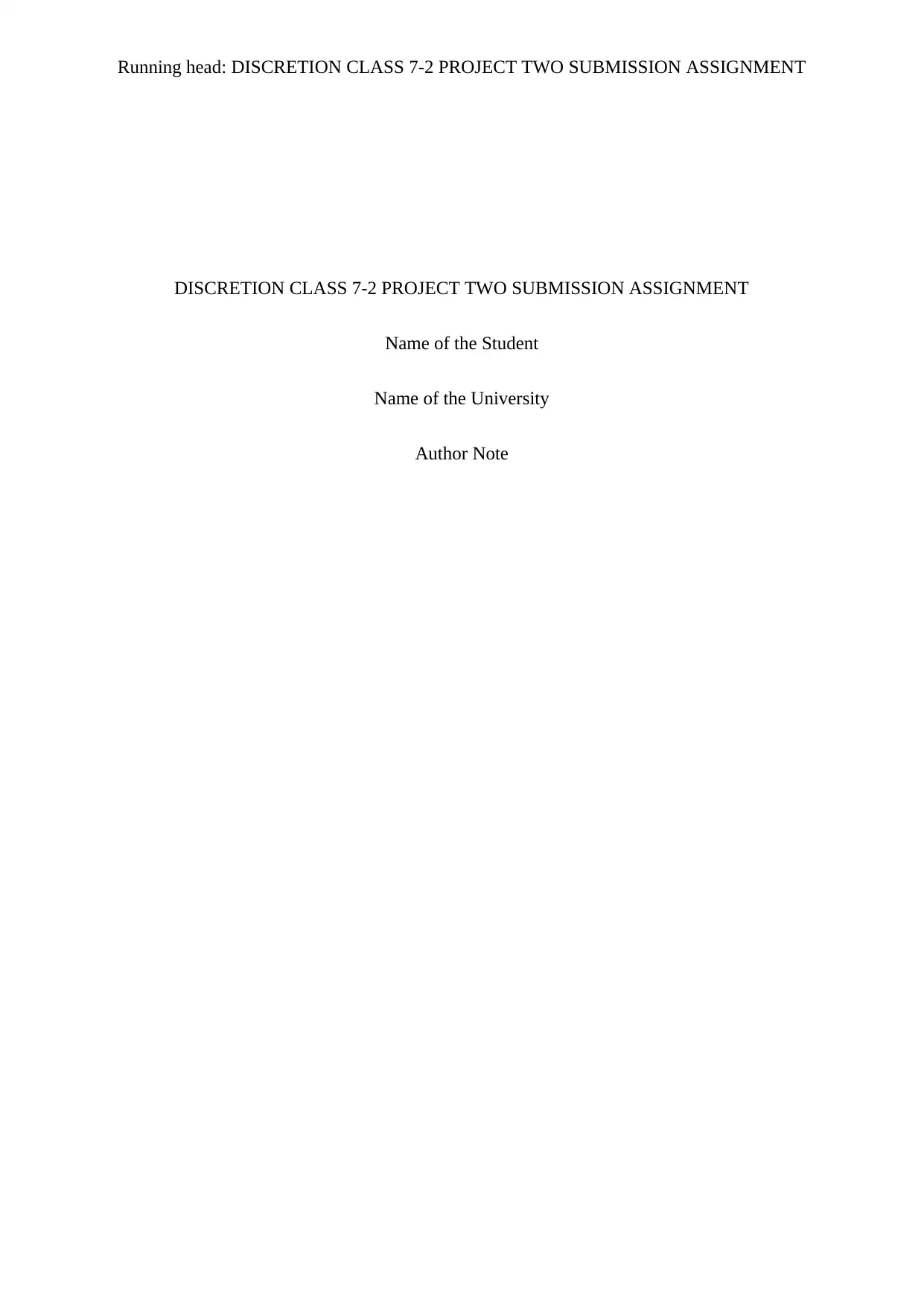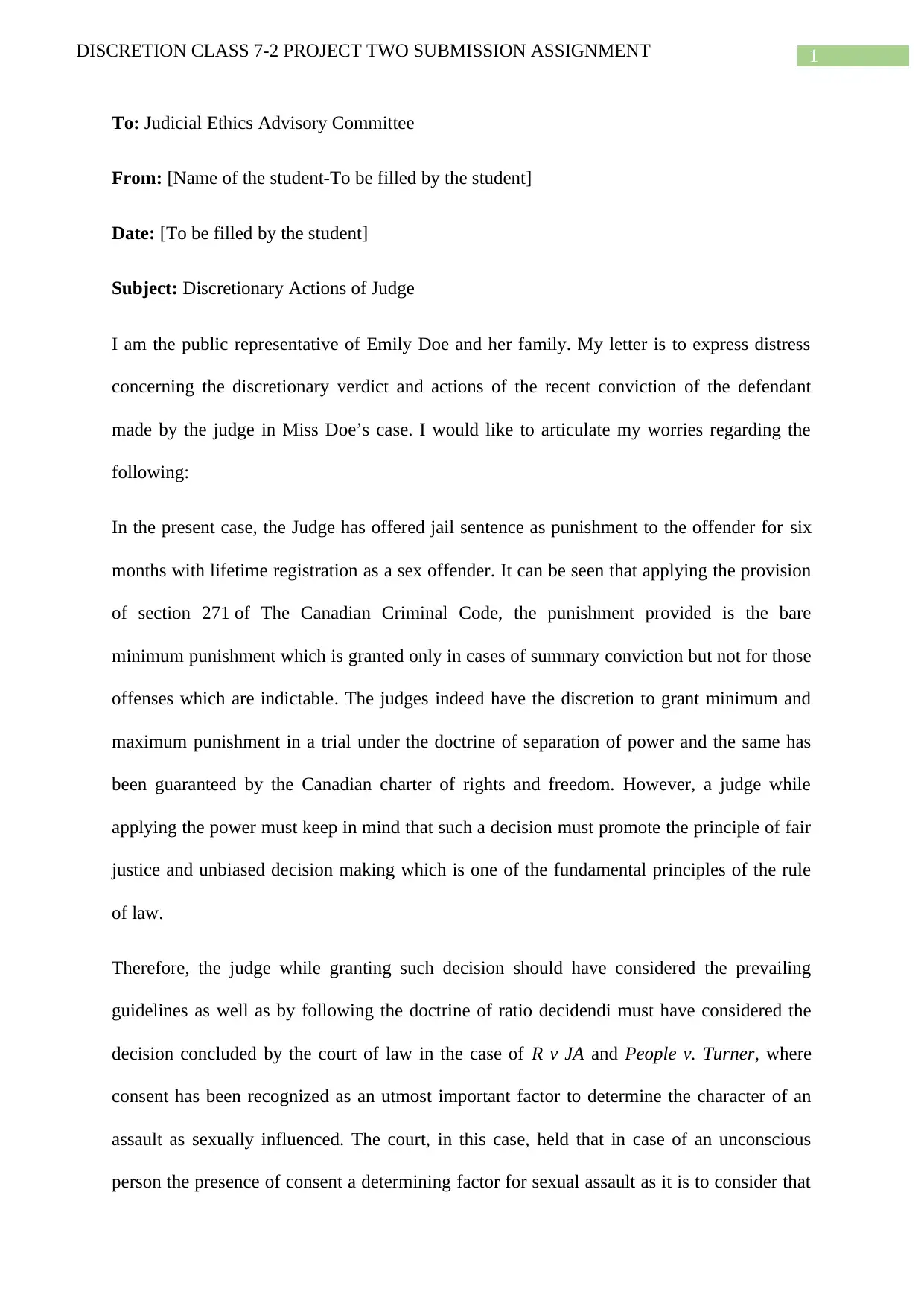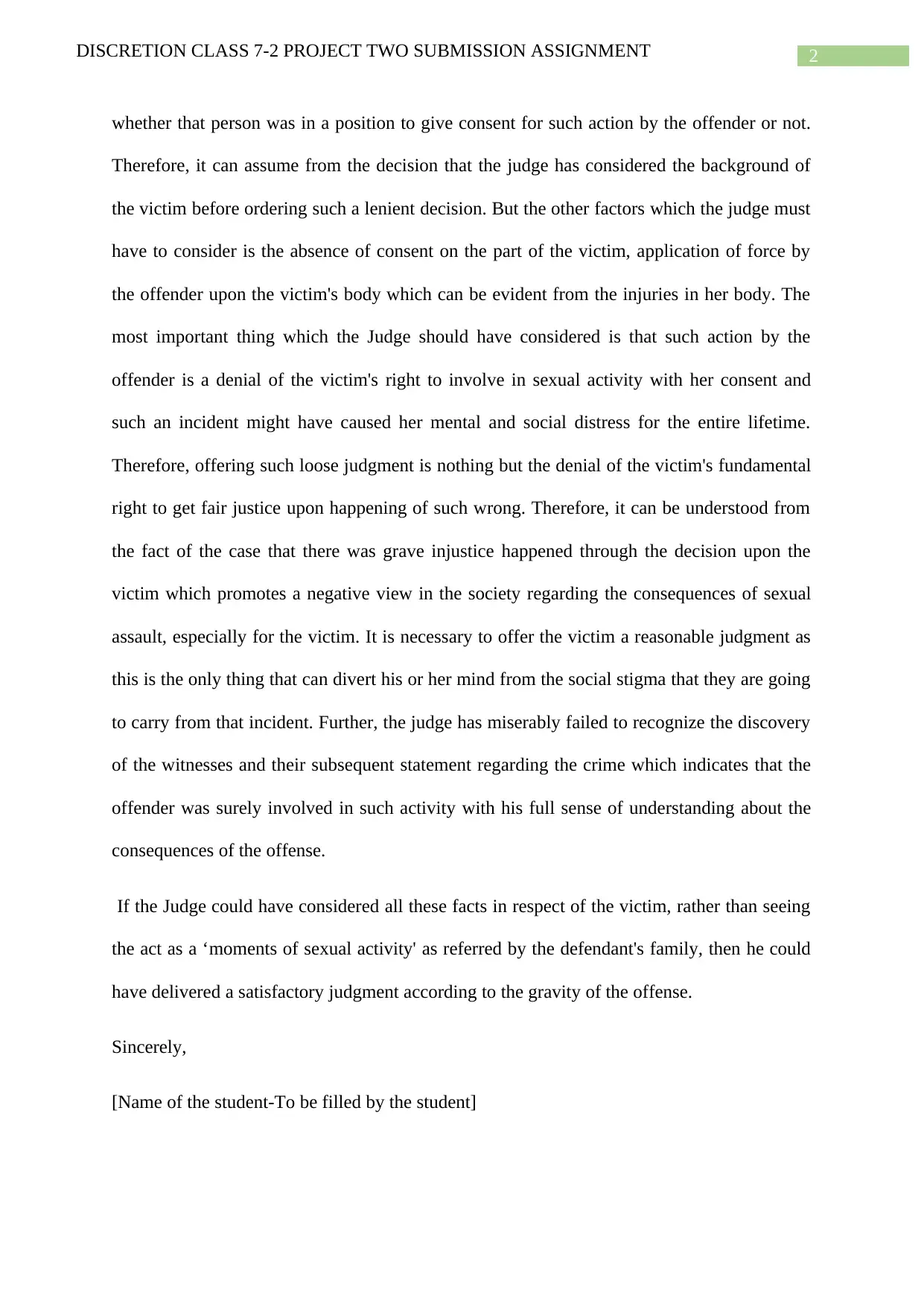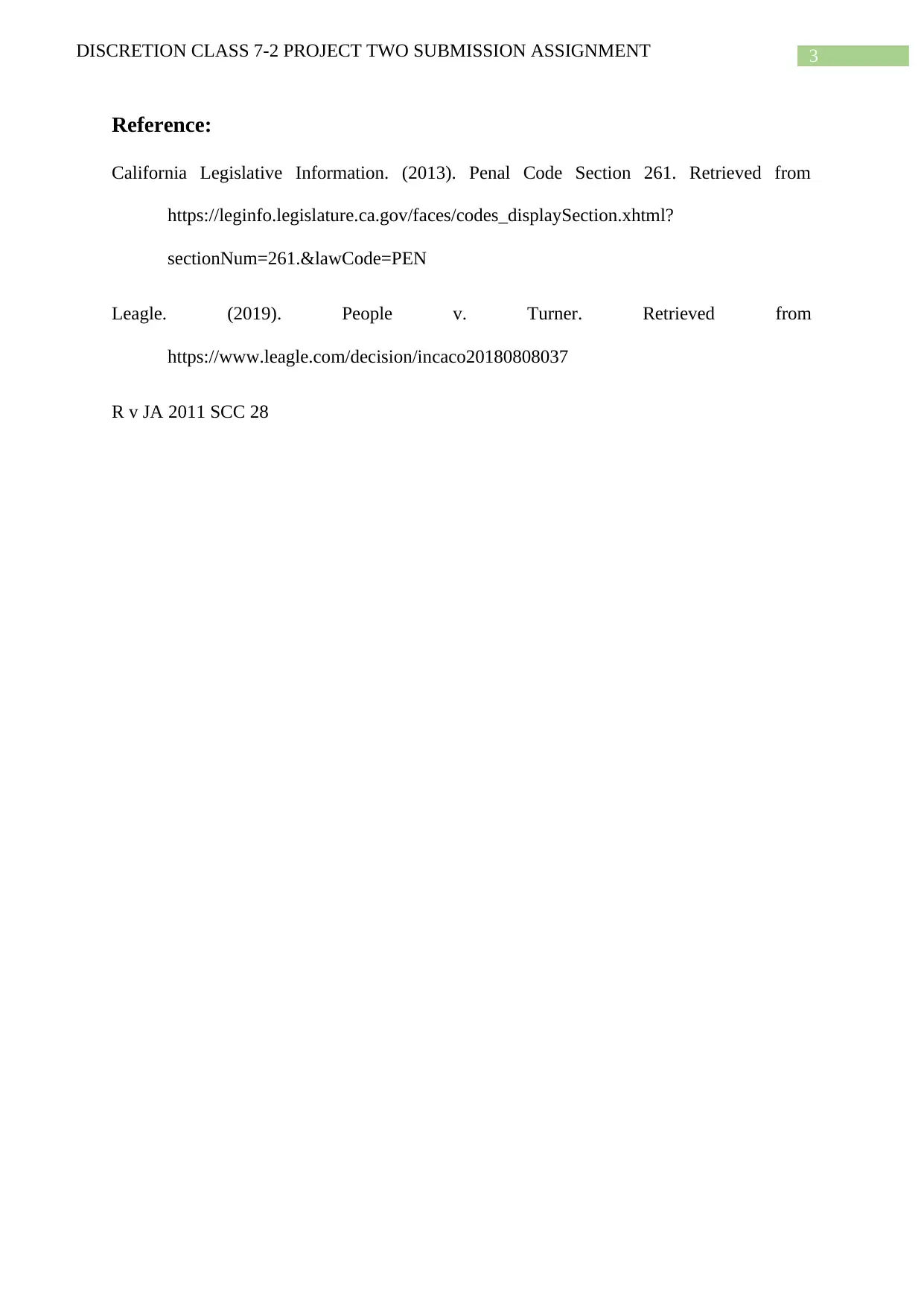Analysis of Judicial Discretion in Project Two Submission, Class 7-2
VerifiedAdded on 2022/09/15
|4
|771
|18
Project
AI Summary
This project analyzes a memo addressed to the Judicial Ethics Advisory Committee concerning a judge's discretionary actions in a sexual assault case. The student, acting as the public representative of the victim's family, expresses concerns about the lenient sentence and the judge's decision-making process. The memo scrutinizes the judge's application of legal principles, considering the impact of the ruling on the victim's rights and the broader societal implications. It highlights the importance of considering all facts of the case, including the victim's lack of consent, the physical evidence of the assault, and the defendant's actions. The student argues that the judge failed to deliver fair justice, potentially promoting negative views on sexual assault consequences. The project examines the discretionary decisions made by the judge, identifying potential legal and ethical impacts, and underscores the need for a judgment that adequately reflects the gravity of the offense and supports the victim's rights.
1 out of 4






![[object Object]](/_next/static/media/star-bottom.7253800d.svg)